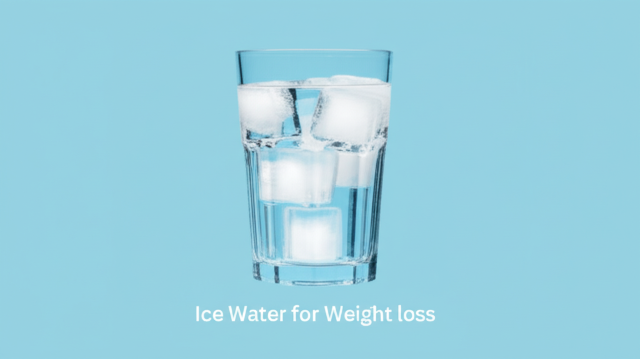
Ice Water for Weight Loss: Fact or Fiction?
The quest for effective weight loss methods is a journey many embark on. From fad diets to intense workout routines, the options seem endless. Lately, a simple, readily available solution has gained traction: ice water. But does drinking ice water really contribute to weight loss? Let's delve into the science and separate fact from fiction.
The Thermic Effect of Food (TEF) and Water
Our bodies expend energy to digest, absorb, and process food. This energy expenditure is known as the thermic effect of food (TEF). While the TEF for most foods is relatively low (around 10%), it's higher for protein than for carbohydrates or fats. Interestingly, the process of heating up cold water also requires energy. This means that your body has to burn calories to bring the temperature of ice water up to your body's temperature. This is where the connection to weight loss comes into play.
Studies have shown that drinking cold water can slightly increase your metabolism. This increase, although small, can add up over time. However, it's crucial to understand that the calorie expenditure from heating cold water is minimal, not a significant factor in substantial weight loss.
Beyond Calories: The Benefits of Hydration
While the direct calorie-burning effect of ice water is modest, the benefits of adequate hydration extend far beyond a slight metabolic boost. Water plays a vital role in many bodily functions, including:
- Appetite regulation: Often, thirst is mistaken for hunger. Drinking water before meals can help you feel fuller, leading to reduced food intake.
- Improved metabolism: Proper hydration supports the efficient functioning of metabolic processes, contributing to overall health and well-being.
- Increased energy levels: Dehydration can lead to fatigue. Staying well-hydrated can improve energy levels and boost physical performance.
- Improved digestion: Water is essential for proper digestion and nutrient absorption.
- Weight management: Adequate hydration can support weight management efforts by reducing overeating and promoting overall health.
Drinking plenty of water, whether it's ice-cold or room temperature, is crucial for maintaining optimal health. It aids in digestion, improves energy levels, and can contribute to a feeling of fullness, which can be beneficial for weight management.
Ice Water vs. Room Temperature Water: Is There a Difference?
The question often arises: Does ice water offer a greater advantage for weight loss compared to room temperature water? While ice water does require your body to expend a tiny bit more energy to warm it up, the difference in calorie expenditure is negligible. The overall impact on weight loss is insignificant.
The key is to prioritize adequate hydration, not the temperature of your water. Aim to drink enough water throughout the day, regardless of whether it's cold, room temperature, or even lukewarm. Listen to your body's thirst cues and drink water consistently throughout the day.
Ice Water and Other Weight Loss Strategies
It's crucial to understand that ice water alone won't magically melt away excess weight. It's a small component of a larger, holistic approach to weight management. Effective weight loss requires a combination of factors, including:
- Balanced Diet: Focus on a nutritious diet rich in fruits, vegetables, lean protein, and whole grains. Limit processed foods, sugary drinks, and unhealthy fats.
- Regular Exercise: Incorporate regular physical activity into your routine. Aim for at least 150 minutes of moderate-intensity aerobic exercise per week, along with strength training exercises.
- Sufficient Sleep: Aim for 7-9 hours of quality sleep each night. Lack of sleep can disrupt hormones that regulate appetite and metabolism.
- Stress Management: Chronic stress can contribute to weight gain. Practice stress-reducing techniques like meditation, yoga, or spending time in nature.
Potential Drawbacks of Excessive Ice Water Consumption
While drinking plenty of water is beneficial, consuming excessive amounts of ice water, especially very quickly, can have some potential drawbacks:
- Headaches: Rapid consumption of cold water can sometimes trigger headaches in some individuals.
- Tooth Sensitivity: The extreme cold can aggravate tooth sensitivity for those with existing issues.
- Digestive Issues: Drinking very cold water too quickly can sometimes cause temporary digestive discomfort.
Conclusion
In conclusion, while drinking ice water might offer a minuscule contribution to calorie expenditure due to the thermic effect, it's not a miracle weight loss solution. The primary benefit lies in maintaining adequate hydration, which supports various bodily functions and plays a role in appetite regulation and overall well-being. For successful weight loss, focus on a comprehensive strategy that includes a balanced diet, regular exercise, sufficient sleep, stress management, and of course, staying well-hydrated with plenty of water, regardless of its temperature.
Remember to consult with a healthcare professional or registered dietitian before making significant changes to your diet or exercise routine, especially if you have any underlying health conditions.


No comments:
Post a Comment